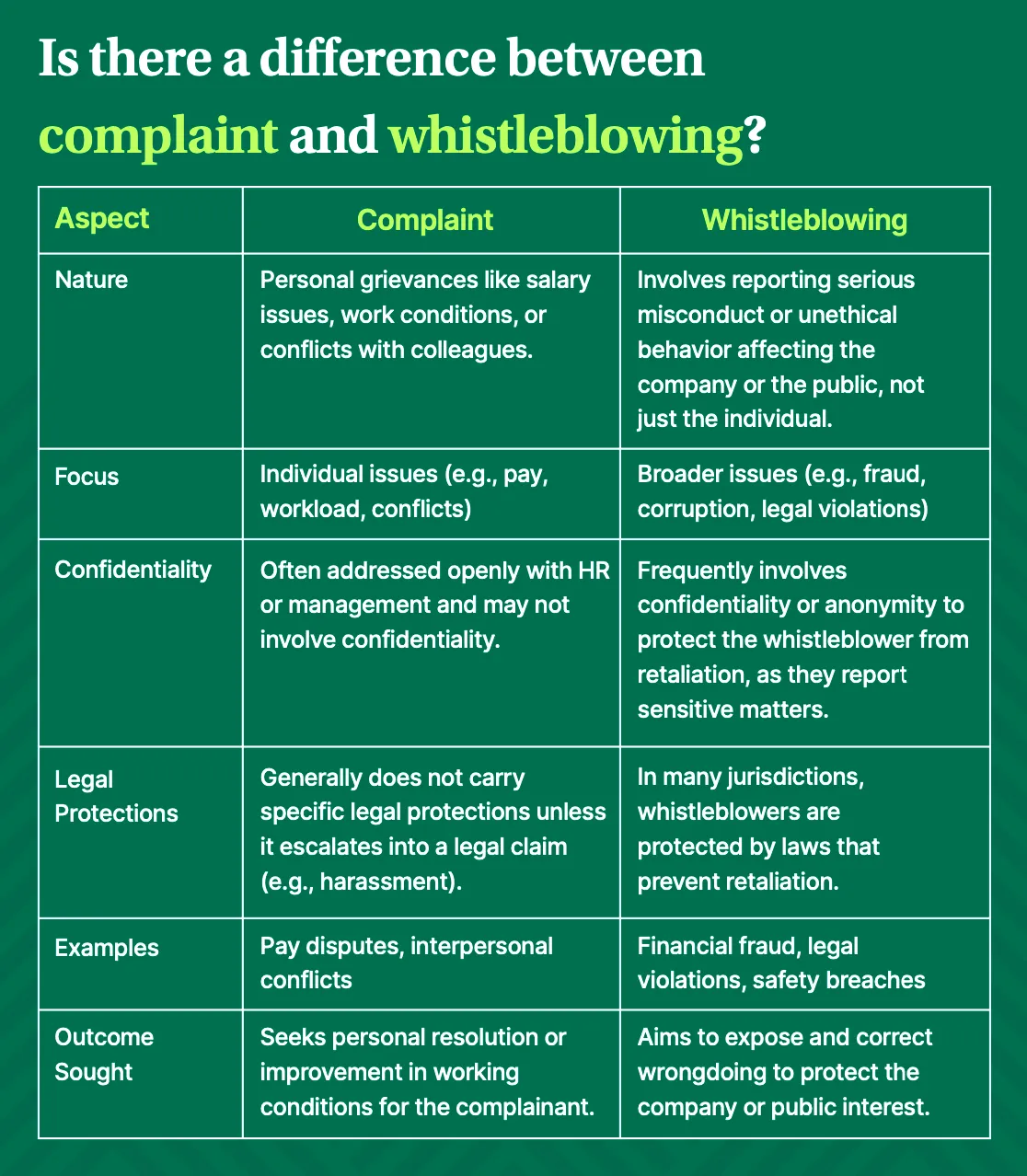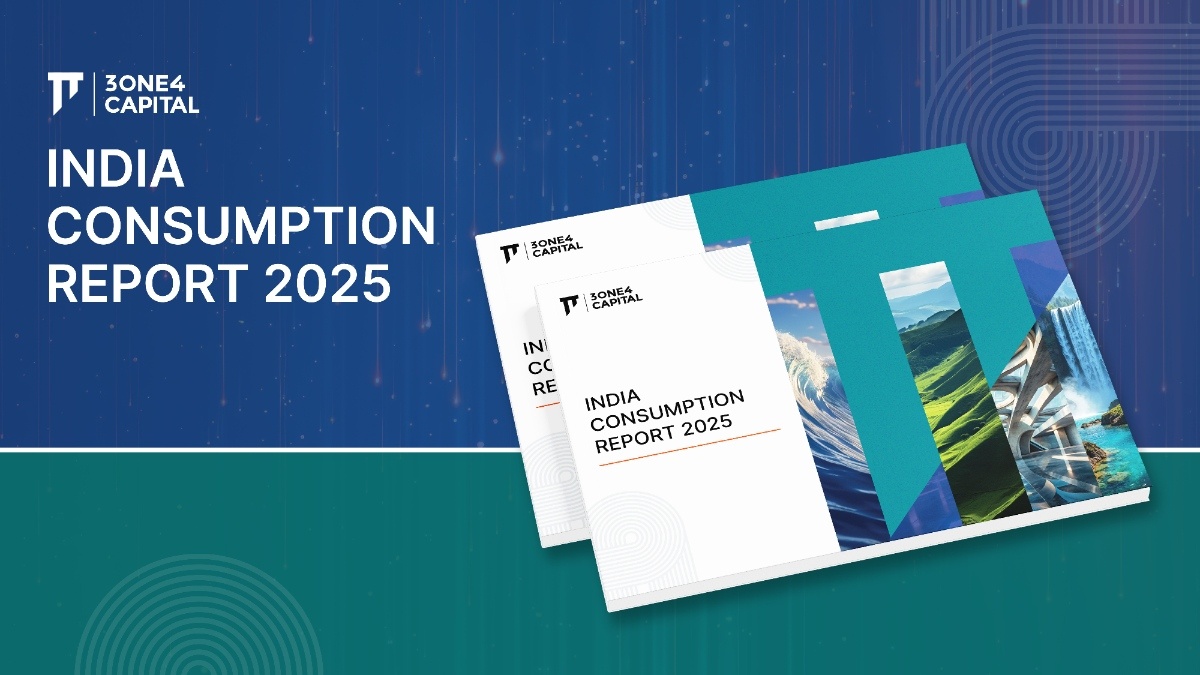
Whistleblowing in Startups: Building Trust and Safeguarding Growth
What is Whistleblowing?
In India, the Whistleblowers Protection Act, 2014 provides the legal framework for whistleblowing, primarily for companies in the public sector. The Act defines a whistleblower as any person who makes a disclosure about:
- Acts of corruption,
- Misuse of power,
- Criminal offenses, or
- Other forms of misconduct by a public servant.
In simpler terms, whistleblowing is when someone inside a company—such as an employee, contractor, or stakeholder—reports wrongdoing or unethical behaviour happening within the organisation.
Whistleblowing can cover a wide range of issues, including:
- Fraud: Deception for financial or personal gain, including embezzlement or falsifying financial records.
- Corruption: Bribery, misuse of power, or other corrupt activities that compromise the integrity of the organization.
- Harassment and Discrimination: Unfair treatment of individuals based on race, gender, sexual orientation, religion, or other personal factors.
- Health and Safety Violations: Dangerous working conditions or practices that put employees, customers, or the public at risk.
- Compliance Failures: Not following laws, regulations, industry standards, or internal company policies.
- Conflicts of Interest: When personal interests improperly influence professional decisions or actions within the company.
- Ethical Violations: Actions that may not be illegal but go against the company’s code of conduct or ethical standards.
- Misuse of Company Resources: Unauthorized or unethical use of company funds, property, or resources for personal benefit.
How whistleblowing is crucial for organizational integrity?
Implementing whistleblowing systems is critical for fostering a transparent and accountable organizational culture. Key findings1 that highlight he need are:
- 38% of respondents admitted they would act unethically to advance their career or financial status.
- 67% of board members acknowledged they might behave unethically for personal gain.
- 43% of all fraud cases are uncovered through whistleblower tips, with most tips coming from employees.
- 65% of senior management reported feeling pressure not to disclose misconduct.
- 68% of integrity incidents involved third-party misconduct.
Is there a difference between complaint and whistleblowing?

Legal applicability in India for startups
India’s Whistleblower Protection Act, 2014 primarily addresses public sector corruption, ensuring that whistleblowers are protected from retaliation. In the private sector, the Companies Act, 2013 mandates that listed companies have reporting systems in place for issues like fraud.
While startups aren't legally required to comply with these frameworks, it’s a good idea to implement whistleblowing policies early. Set up anonymous reporting channels, ensure confidentiality, and protect whistleblowers from any kind of backlash. Doing this builds trust within the team, boosts transparency, and shows investors the commitment to ethical practices.
Why should startups have a whistleblowing mechanism?
- Early risk detection: Startups are vulnerable to fraud, IP theft, and compliance failures. A whistleblowing system acts as an early warning, helping catch these issues before they escalate. According to Association of Certified Fraud Examiners’ report (ACFE)2, Companies with whistleblowing policies detect fraud 43% faster thanks to tips.
- Respecting human rights: For startups, respecting human rights means fair treatment, non-discrimination, and ethical practices across all operations. It’s about more than just doing the right thing—it helps build trust with employees, customers, and investors. In fact, 75% of investors say human rights performance influences their investment decisions.
- Building trust and transparency: Small teams thrive on trust. A whistleblowing mechanism provides employees with safe, anonymous channels to report concerns. According to a benchmarking report by The Institute of Internal Auditors (Madras chapter)3, 82% of organizations now offer multiple channels, such as hotlines and web platforms, for anonymous reporting. This builds a trust-based environment that encourages openness and accountability.
- Boosting investor confidence: Investors are keen on governance. Having a whistleblower policy shows you’re proactive about risks. Startups with strong governance, including whistleblowing, see higher investor confidence.
- Staying compliant: As startups scale, compliance with regulations becomes critical, especially in industries like fintech or healthcare. Whistleblowing helps quickly address compliance issues, reducing potential fines or sanctions. Whistleblower complaints in India rose by 8% in FY244, showing growing awareness of compliance issues.
- Protecting your reputation: A startup’s reputation is fragile, and public scandals can be devastating. A whistleblowing system allows you to resolve problems internally, before they become public. 91% of companies that receive anonymous tips handle issues before they escalate5.
How can you create a step-by-step guide to implement a whistleblower policy for your startup?
- Step 1: Identify core risks - Start by pinpointing areas that are most vulnerable—whether it’s financial mismanagement, workplace harassment, or compliance issues. Think about where things could go wrong or where errors are likely to happen. For instance, Airbnb recognized customer safety as a key area and built a strong whistleblowing process around it.
- Step 2: Establish reporting channels - Make reporting easy and ensure anonymity. This could be through email, third-party platforms, or internal tools like Slack. Anonymity is essential, as people are more likely to report concerns if they feel safe. Companies like Unilever have implemented anonymous hotlines and third-party services to securely handle complaints.
- Step 3: Define the investigation process - Once a report is received, a clear, fair process for investigating it is critical. Outline who will handle the investigation, how long it will take, and how confidentiality will be maintained. Google, for example, assigns specific teams to investigate, with defined roles and timelines.
- Step 4: Train the team - It’s important that everyone understands the whistleblower policy and why it matters. All-hands meetings, onboarding, and regular reminders are great ways to ensure the message gets through. Microsoft uses training sessions and quizzes to make sure employees are familiar with reporting channels and understand the seriousness of raising concerns.
Pro Tip: Prioritise transparency and confidentiality: Make your whistleblower policy easily accessible on your website to show your commitment to ethical governance. Highlight clear reporting channels and emphasise confidentiality to foster trust and encourage employees, investors, and partners to come forward with confidence.
How should startups handle a whistleblower complaint?
- Step 1: Respond immediately, stay neutral: As soon as a whistleblower report comes in, acknowledge it immediately. It's crucial to maintain confidentiality and assure the whistleblower that their identity will be protected. Stay neutral—don’t make any premature judgments or assumptions. Make sure to appoint legal counsel at this stage to guide the process and ensure that all legal standards are met right from the start.
- Step 2: Conduct a fair investigation: With legal counsel involved, start a thorough and impartial investigation. Collect facts, interview relevant parties, and document every step to build an evidence-based picture. Legal counsel can help ensure that you follow correct procedures, and that confidentiality is upheld throughout. Following your whistleblowing policy is critical to ensure transparency and fairness.
- Step 3: Take action or communicate findings: Once the investigation is complete, take appropriate action. If the claim is substantiated, implement corrective measures like disciplinary action or policy changes. If the claim is unsubstantiated, communicate this clearly while protecting the rights of the whistleblower. Legal counsel should review the findings before any final actions are taken to ensure compliance and protect the company from future risks.
Pro Tip: Keep legal counsel involved: Involving legal counsel throughout the entire process minimizes risks, helps avoid legal pitfalls, and ensures that the process complies with all regulations and internal policies.
How can founders protect whistleblowers in their startup?
- Job security: Ensure that anyone who reports an issue is protected. Whistleblowers shouldn’t fear being fired, demoted, or having their role altered because they spoke up. Set clear rules to prevent any form of retaliation, such as reducing responsibilities or changing job terms.
- Protection from harassment: Implement a zero-tolerance policy for harassment or discrimination against whistleblowers. This includes subtle or indirect forms of retaliation, such as creating a hostile work environment or blocking career growth.
- Anonymous reporting: Offer employees the option to report anonymously so they feel safe. When people know their identities are protected, they're more likely to speak up. Big companies like Infosys have successfully implemented such systems.
- Communication and awareness: Ensure that everyone in your startup is aware of the whistleblowing policy—especially the part about no retaliation. Employees should clearly understand that even subtle forms of retaliation won’t be tolerated.
- Post-report monitoring: After a report is made, monitor how the whistleblower is treated over time. Check for any changes in their job responsibilities or work environment to ensure they’re not being penalized for speaking up.
- Anonymous follow-ups: If someone reports anonymously, provide a confidential way for them to follow up. This allows them to check the status of their report and raise any concerns about retaliation.
- Independent review process: Ensure that any retaliation complaints are handled by a neutral party or a third party. This avoids conflicts of interest and ensures the process remains fair.
- Legal protection documentation: Document everything clearly! Communicate that whistleblowers are protected by policies and emphasize that your startup is fully committed to upholding those protections.
What common mistakes should you avoid when setting up a whistleblower policy for your startup?
Ignoring small complaints: Don’t brush off minor concerns. Even small issues can snowball into bigger problems if left unchecked. Taking every report seriously shows your commitment to addressing potential issues before they turn into major headaches.
Lack of confidentiality: If confidentiality isn’t maintained, trust will be shattered—not just with the whistleblower but with the rest of the team. Employees need to feel confident that their identity is safe; otherwise, they won’t come forward. Plus, leaks can seriously damage the company’s reputation.
Inadequate training or awareness: It’s not enough to simply have a policy—your team needs to know about it! Make sure every employee is trained and understands how they can report concerns. Real-life examples show that companies failing to communicate policies effectively often see lower reporting rates and bigger scandals later on. A little training can go a long way!
Conclusion
Implementing a whistleblowing policy is essential for startups aiming to build a culture of transparency and trust. By fostering an environment where employees feel safe reporting unethical behaviour, founders can address issues before they escalate, protecting both the company’s integrity and reputation. A well-structured whistleblowing mechanism not only minimises internal risks but also promotes a healthier, more accountable workplace. In the long run, this proactive approach helps build stronger relationships with employees, investors, and customers, positioning the startup for sustainable growth and success.


.webp)












